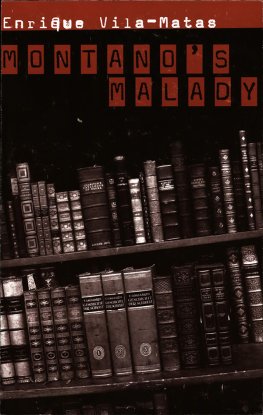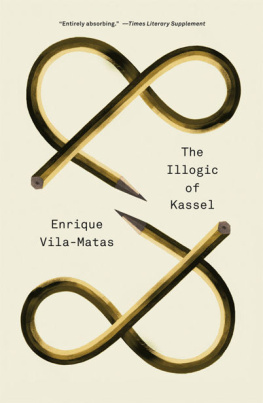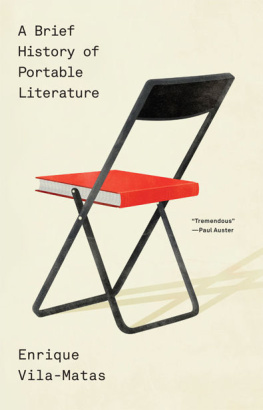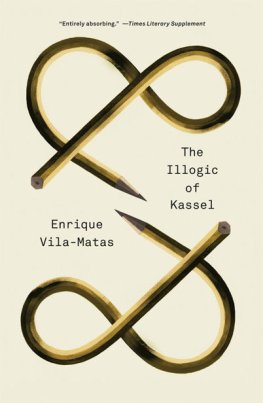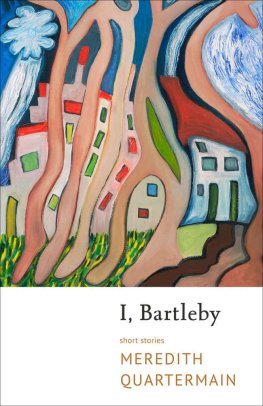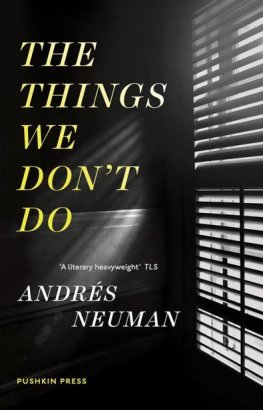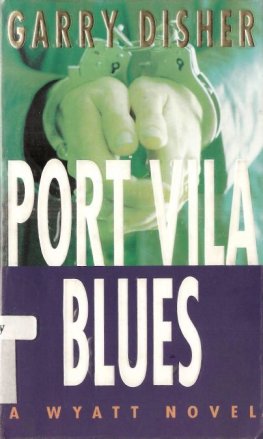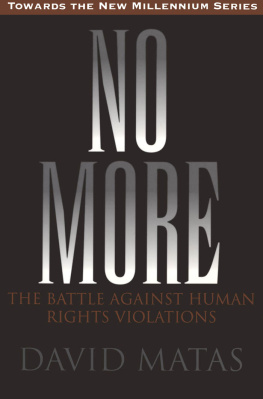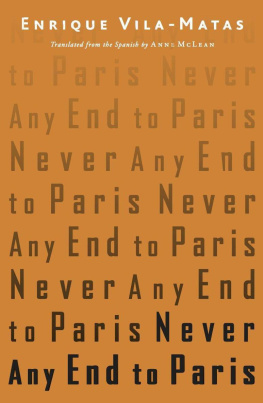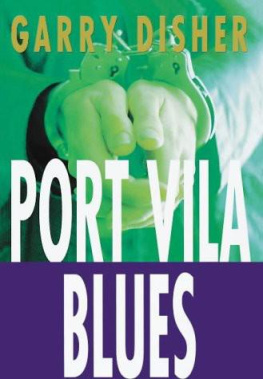Enrique Vila-Matas
Montano's Malady
What will we do to disappear?
MAURICE BLANCHOT
At the end of the twentieth century, the young Montano, who had just published his dangerous novel about the curious case of writers who give up writing, got caught in the net of his own fiction and, despite his compulsive tendency towards writing, suffered a complete block, paralysis, a tragic inability to write.
At the end of the twentieth century today, November 15, 2000, to be more precise I visited him at his home in Nantes and, just as I had expected, found him so sad and so dried up that some verses by Pushkin could well be used to describe him: Montano lives wandering / in the shade of the woods / with the dangerous novel.
The good thing is that wandering in the shade of the woods has led my son the fact is that Montano is my son to recover a certain passion for reading, and I have benefited from this. Not long ago, and on his recommendation, I read Prosa de la frontera propia, a novel recently published, by Julio Arward, a strange writer whom I had never fully trusted, believing him simply to be playing at being the double of the novelist Justo Navarro.
Today, among other things, I thanked my son for having recommended this book by Justo Navarros double, less his double since he wrote this novel. It is a good book and, reading it, I was often reminded of something I heard Julio Arward say on the radio one day: A girlfriend once told me that all of us have a double in another place, living their life with a face identical to ours. Reading this book, I was also reminded of something I heard Justo Navarro say one day, which I have sometimes given to understand was said by me: There are coincidences and chances from which you die laughing, and there are coincidences and chances from which you die.
The narrator of Prosa de la frontera propia is one of lifes strangers and at the same time a hero who appears to have walked straight out of a Chinese tale; he has a shadowy twin brother, or rather first cousin, who looks just like him and, to cap it all, has the same name: they are both called Cosme Bada.
The theme of the double and of the doubles double, and so on ad infinitum in an extensive set of mirrors is found at the center of the labyrinth of Julio Arwards novel, a novel that and now I am writing as the literary critic that I am is a fictitious autobiography in which the author pretends to be Cosme Bada and, recalling with a memory that is not his own, invents the world of the two first cousins and makes out that he is recalling this world without for a moment forgetting Faulkners description of the novel as a writers secret life, wherein exists a mans shadowy twin brother.
Perhaps this is what literature is, the invention of another life that could well be our own, the invention of a double. Ricardo Piglia says that to recall with a memory that is not our own is a variant of the double, but it is also a perfect metaphor for literary experience. Having quoted Piglia, I observe that I live surrounded by quotations from books and authors. I am literature-sick. If I carry on like this, literature could end up swallowing me, like a doll in a whirlpool, causing me to lose my bearings in its limitless regions. I find literature more and more stifling; at the age of fifty it frightens me to think that my destiny is to turn into a walking dictionary of quotations.
The narrator of Prosa de la frontera propia is someone who seems to have just emerged from a painting by Edward Hopper. There is nothing unusual in this, since Arward has felt fascination for this American painter ever since 1982, when he bought my first book the first of five, all of literary criticism, that I have published and he only bought it because on the front cover it had Nighthawks, Edward Hoppers painting about night drinkers. At the time Arward had never seen a painting by Edward Hopper and he bought the book for the front cover he did not even know me then which he cut out with some kitchen scissors and hung on a wall of his home. He told me this himself a few years ago, when we met. I was not in the least offended, since I also remembered having cut out from a newspaper an article of his, Lifes Strangers, which I pinned to a wall of my study just to remind myself that I had to call Justo Navarro and tell him that there was a guy by the name of Arward who was copying him, in particular when he wrote, for example, The lonely drinker in Nighthawks appears to be recalling past adventures in China. His neck, his back, his shoulders, bear the burden of the cold light of memory and of the years.
Prosa de la frontera propia, which recalls Cosme Badas past Chinese adventures, led me the other day to remember when I put my name to an interview with Justo Navarro that he had in fact conducted himself, while on the facing page there was an interview that I had done, but which Justo Navarro had put his name to. Both interviews began with the same question, agreed beforehand: Would you swap places with me? Right now, I replied. Not right now, answered Justo Navarro. Another time Id love to, but not right now. At the moment youre asking the questions and Im answering them; if I swapped places with you, I would have to start asking them.
Both Justo Navarro and I have always been obsessed with things that coincide, things which are equal, double. For a long time the police would always ask Justo Navarro for his documents at airports and search his baggage. When it occurred to him one day to ask a security guard why they only ever stopped him, the guard explained that his appearance coincided with the description of a wanted criminal.
Something similar happened to me in 1974 when I lived in Paris and was arrested in the drugstore of Saint-Germain-des-Prs, having been mistaken for the Venezuelan terrorist Carlos. Coincidences and chances. With these in mind, I have suddenly realised that in 1994 Sergio Pitol wrote a story called The Shadowy Twin Brother, which he opened with a quotation from Justo Navarro: To be a writer is to turn into someone else, into a stranger. You have to begin to translate yourself. Writing is a case of impersonation, of adopting a new personality. Writing is pretending to be another.
Further coincidences and chances. Without knowing that Justo Navarro and I more than once have pretended to be each other (possibly without even suspecting that we are acquainted), Sergio Pitol has made us coincide in The Shadowy Twin Brother, because the story is dedicated to me: To my friend from overseas, to the last critic with delirious criteria.
* * *
Today, in Montanos home in Nantes, having confirmed that he is suffering as a result of his literary paralysis, I tried to amuse him by telling him all these stories of doubles and doubles doubles.
There are coincidences and chances, my son remarked, from which you die laughing, and there are coincidences and chances from which you die.
Didnt Justo Navarro say that?
And Julio Arward as well, who used it not long ago in an article you may not have seen.
An expression of deep anguish came over Montanos face. Everyone writes, he said. Next to him his partner, Aline, gave him a terrible look of compassion. Aline is beautiful, silent, intelligent. I do not know her very well only from two times she has passed through Barcelona but she inspires confidence in me. In us. Rosa, my wife and Montanos stepmother believes that she is the best company that my difficult, unstable son could have.
No doubt youre thinking, Montano said to me, that Im worried because I havent written anything since I published my book. But things are a little different. Its not that I can no longer write, but that Im constantly being visited by the ideas of others, ideas that arrive unexpectedly, that come to me out of the blue and take possession of my brain. At this point he made a dramatic gesture. To tell the truth, no one can write like this.

